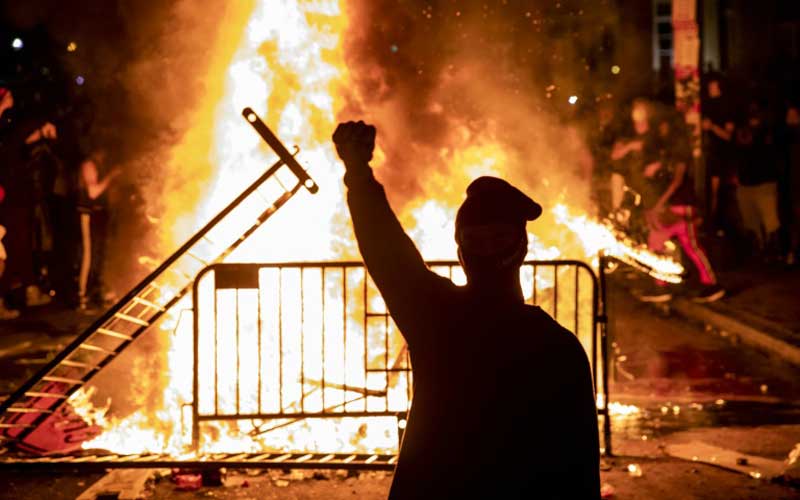×
The Standard e-Paper
Fearless, Trusted News

Fiery protests over racial injustice and a health pandemic that has killed 100,000 Americans and tanked the economy are converging to form what is perhaps the most unstable US presidential election year in modern history. [AFP]
Three concurrent crises scarring the United States -- a deadly health pandemic, economic despair and widespread social unrest -- have reframed this year's presidential contest and prompted national reflection over racial inequality in America.